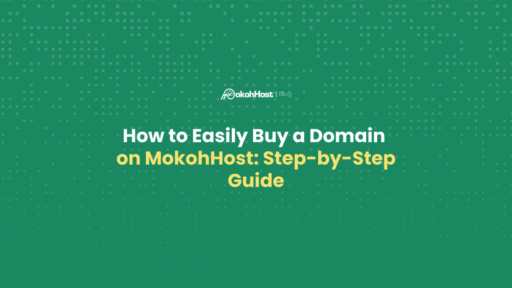Leveraging country-code top-level domains (ccTLDs) is a powerful way for businesses to strengthen local branding, build trust with regional audiences, and stand out in competitive markets.
In the expansive world of the Internet, domain names act as digital signposts, directing users to their intended online destinations. Country Code Top-Level Domains (ccTLDs) hold a distinct and influential position. These country or territory-specific extensions present valuable advantages for businesses, organizations, and individuals.
Choosing the right domain extension is essential for creating a strong online identity and effectively reaching your target audience. Using a country code top-level domain (ccTLD) doesn’t limit your website’s visibility worldwide, but it can help you connect more effectively with a local audience. ccTLDs can also improve your SEO performance and build trust with visitors.
However, some key considerations must be remembered before starting the registration process. This article will explain ccTLDs and their key considerations, highlighting their role in today’s digital landscape.
You Might Find This Helpful
Custom Domain vs Subdomain: Which is Better for Branding
What are Country-Code TLDs
Country Code Top-Level Domains (ccTLDs) are two-letter domain extensions designated for specific countries or territories, based on the ISO 3166-1 alpha-2 codes.
Examples include “.us” for the United States, “.ng” for Nigeria, and “.uk” for the United Kingdom. These extensions help identify a website’s geographic location or regional affiliation.
Think of buying a skincare product. If a dermatologist recommends it, you’re more likely to trust it than if a random influencer does.
Similarly, search engines give more weight to backlinks from authoritative and topically relevant sites than to those from unrelated or low-quality sources; credibility and relevance are key factors.
How do ccTLDs work?
Registering a ccTLD links your website to a specific country code, signaling to search engines like Google that your content targets a particular geographic area. As a result, your site is more likely to appear in local search results for users in that region.
Country code top-level domains (ccTLDs) are short domain extensions, such as .fr for France, that signal a website’s association with a specific country or region. They help identify the site’s intended geographic audience.
These extensions are part of the Domain Name System (DNS), which converts human-friendly website names into numerical IP addresses that computers use to communicate.
The Internet Corporation for Assigned Names and Numbers (ICANN) manages domain names globally, including ccTLDs and generic top-level domains (gTLDs). Within ICANN, the Internet Assigned Numbers Authority (IANA) assigns country-specific codes that become ccTLDs.
What are the Benefits of Using ccTLDs?
Leveraging ccTLDs for local branding goes beyond showcasing your geographic identity; it provides real advantages for businesses aiming to reach specific regional markets.
Choosing a country-specific domain can help build trust, increase visibility in local search, and foster stronger connections with local customers.
Here are the key benefits of leveraging ccTLDs for local branding success.
Improve Local SEO by Leveraging ccTLDs for Local Branding
ccTLDs signal to search engines that your website is relevant to a specific country, which can help it rank higher in local search results.
Search engines often prioritize ccTLDs in regional SERPs, viewing them as more relevant to users searching within that geographic area. This can significantly boost your site’s visibility and attract more targeted traffic.
Additionally, studies suggest that the geographic origin of backlinks influences local SEO performance.
These localized backlinks reinforce to search engines that your content is valuable to users in that region, further enhancing your chances of ranking well in local search results.
Leveraging ccTLDs for Local Branding to Enhance Geographic Relevance
ccTLDs immediately signal a website’s association with a specific country or region, making them especially valuable for businesses aiming to reach local markets. For example, a website using a .ca domain indicates its presence in Canada, which can help build trust and credibility with Canadian consumers.
In addition to domain relevance, backlinks from country-specific TLDs further reinforce a site’s geographic targeting. If your website receives numerous backlinks from domains ending in .uk, search engines are more likely to view your content as relevant to users in the United Kingdom.
Local domain usage and region-specific backlinks can enhance your site’s authority and improve its rankings in local search results.
Businesses can more effectively tailor their marketing strategies to local audiences, making connecting with and engaging the right customers easier.
Leveraging ccTLDs for Local Branding to Build Trust With Local Audiences
Using a ccTLD signals potential customers that your business has a local presence, which can build trust and encourage loyalty, especially among consumers who prefer to shop within their region.
Beyond trust, a ccTLD enables businesses to customize their online presence for local audiences through language localization, cultural relevance, and targeted marketing strategies. This tailored approach can lead to higher user engagement and improved conversion rates.
Leveraging ccTLDs for Local Branding to Strengthen Brand Protection
Securing a ccTLD is a strategic step in leveraging ccTLDs for local branding, as it helps protect your brand’s identity within a particular geographic region.
By registering country-specific domain extensions, businesses can prevent competitors or unauthorized parties from capitalizing on their brand reputation in local markets.
Legal and Regulatory Factors
Certain countries enforce regulations that encourage or even mandate the use of a ccTLD for businesses operating within their borders.
Advanced Tactics to Maximize the Value of ccTLDs
Having backlinks from relevant ccTLDs already boosts your local SEO, but you can amplify these benefits with more strategic approaches:
Build a Diverse International Link Profile
Acquiring links from ccTLDs in different countries within your target region strengthens your backlink strategy. This shows search engines that your content has broader international relevance.
Use ccTLDs to Target Multiple Regions by Leveraging ccTLDs for Local Branding
If your business serves customers in various countries, consider registering separate ccTLDs for each (e.g., .co.uk for the UK, .de for Germany). Customize each site’s content to reflect its audience’s language, culture, and preferences.
Organize Content with Subdirectories or Subdomains
For large websites, structuring your content using subdirectories (like example.com/uk/) or subdomains (uk.example.com) alongside ccTLDs can clarify your site’s geographic focus to users and search engines.
Enhance Localization with Geotargeting Tools
Combine ccTLD use with tools such as Google Search Console’s geotargeting settings and Hreflang tags to ensure search engines deliver the correct version of your content to users in each region.
Key Considerations Before Registering a ccTLD
Using a country code top-level domain (ccTLD) can be a smart move for targeting local audiences, but there are several important factors to evaluate before moving forward:
Availability and Eligibility Requirements
Not every ccTLD is open for public registration. Some come with specific eligibility rules, such as requiring a physical presence, a local administrative contact, or a registered trademark in the respective country or region.
Some country-code domain registries have specific registration requirements, such as a local address, residency, or business presence in the country. It’s essential to review and meet these conditions before securing a ccTLD.
Cost of Registration and Renewal
ccTLD pricing varies significantly. While some domains are free (like .tk), others can be costly or include extra charges such as local taxes or administrative fees.
Local Hosting Requirements
Certain ccTLDs require your website to be hosted on a server within the associated country or region. This requirement can impact your site’s speed, performance, and security. In some cases, websites using a ccTLD are required to be hosted on servers located within the corresponding country.
This can influence your choice of hosting provider and impact ongoing maintenance expenses. Hosting services like MokohHost can help meet these location-specific requirements, ensuring your website complies with registry policies while maintaining performance and reliability.
Managing Multiple Domains
Expanding your web presence with a separate ccTLD-based domain means search engines will treat it as an entirely new site.
If managing multiple sites is too complex, consider using subdomains or subdirectories on your existing site instead.
Understanding Legal and Regulatory Policies
Each ccTLD is managed by its governing body, which sets unique rules and regulations for domain ownership and use.
Ensuring your business complies with these policies helps you avoid legal complications.
Considering Global Growth
Although ccTLDs are great for targeting local markets, they can create hurdles for businesses planning to expand internationally.
Adopting a broader domain strategy using generic TLDs or globally recognized extensions might be more effective.
Privacy Limitations
To keep your personal information private, be aware that some country code top-level domains (ccTLDs), such as .au, do not protect domain privacy. Your registrant details, like your name, address, and phone number, may still be visible in the public WHOIS database.
Since domain privacy helps mask this sensitive information, it’s essential to review the specific policies of the ccTLD registry before registering to ensure privacy options are available.
Popular Examples of ccTLDs
Below are a few well-known country-specific domain extensions:
- .us – United States
- .ca – Canada
- .uk – United Kingdom
- .ng – Nigeria
- .jp – Japan
- .au – Australia
Each domain extension corresponds to a particular country or territory, making it easier for websites to connect with and appeal to local audiences.
Conclusion
Country Code Top-Level Domains (ccTLDs) are valuable assets for businesses aiming to establish a strong local presence, boost brand recognition, and effectively target specific regional markets.
When used strategically, ccTLDs can build consumer trust, improve search visibility, and open doors to localized growth opportunities.
With hosting providers like MokohHost, businesses can confidently register and manage ccTLDs while benefiting from reliable support and infrastructure tailored to regional needs.






